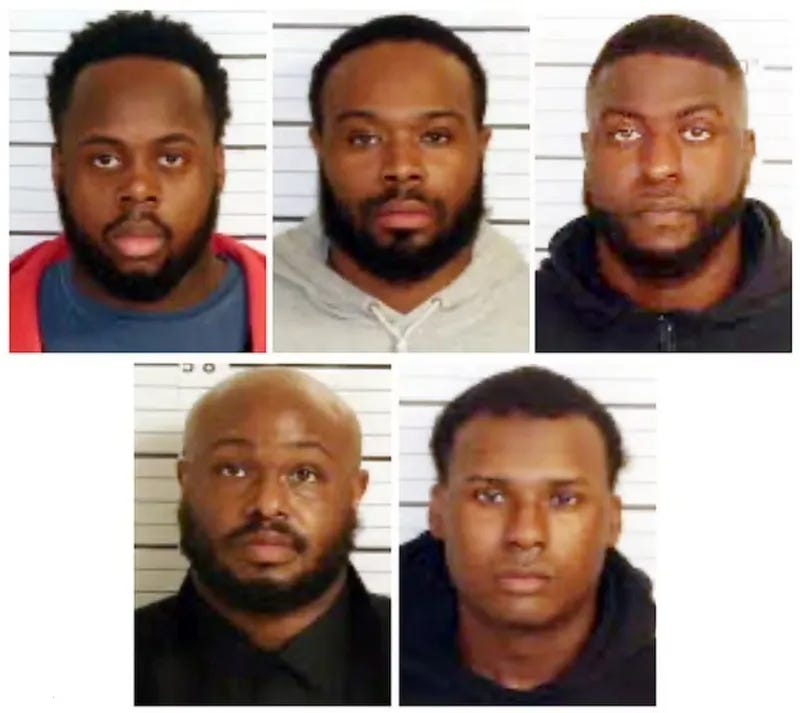
As authorities continue to investigate the deadly beating of Tyre Nichols at the hands of five Memphis Police officers, two things are certain, according to a former sheriff: the officers involved thought they were invulnerable and there was a major failure of supervision.
Ronal Surpas, Professor of Practice in the Department of Criminal Justice at Loyola and former police chief in New Orleans, Nashville and Washington, recently joined WWL's Newell Normand, also the former Jefferson Parish Sheriff, to discuss the horrific situation and what may have led up to it.
Surpas said the problem goes far deeper than the vicious actions of the officers, who are now facing murder charges.
"Many people are thinking about how these officers could have done these things," he said. "What systems did we have that allowed this type of group think, this type of inevitability that 'We're always right' in the minds of these men? I think there needs to be a lot more attention paid on the sergeants, lieutenants and captains who oversaw these people."
A day after officials released body cam footage of the brutal beating, the Memphis Police Department permanently disbanded the task force that the officers were assigned to, the SCORPION unit -- which stands for Street Crimes Operation to Restore Peace in Our Neighborhoods.
Creating a specialized police unit is one thing, but being able to manage and maintain it is something entirely different. Surpas gives his take on what failed in the SCORPION unit that led to the Nichols tragedy.
"We have a long series of science and theories that tell us small numbers of people are willing to commit violent crime in small numbers of street segments. The key phrase there is... it's an identifiable small number of people. That means like a zero-tolerance policy, which is what I've read about the SCORPION unit. It's actually not scientifically-based hot spot policing because a zero-tolerance is not paying attention to individual people, it's paying attention to more environmental," Surpas explained.
"The problem with that is some people who have done nothing wrong in their life might speed or they might forget to stop fully at a stop sign. But people that you've identified through quality intelligence or you've identified through quality investigations that represent these 200 or 300 very dangerous people in a city who are going to operate in 3 to 5 percent of the street segments -- the officers much differently would be looking for those particular people," he continued. "And I think that might be the key difference here, and that would also speak to me about some failure in supervision and leadership of this unit, this SCORPION unit, not because people don't make honest mistakes but five people beating a man to death on television is not an honest mistake in any circumstance."
Surpas said this likely wasn't the first time these officers behaved in this manner.
"These officers, these men... participated in beating an unarmed man knowing they had body cameras, knowing that there's video everywhere in the world today -- I think it gives an illusion of invulnerability on their part, which is one of the key issues of this idea called group think, where people essentially warp reality to meet their view. And it's good supervision that has to break that up," Surpas said. "The signs of invulnerability are all over the horrific beating of this young man. They just thought they were invulnerable, that nobody could do anything to them. That's a systemic problem."
The situation represents an exact example of a systems failure and what the leadership of the Memphis Police Department has not been doing to identify those failures, Surpas said.
"When you're a sergeant or lieutenant and every time someone submits to you a police report... and you start to notice that every person they arrest, as a hypothetical, has a resisting arrest charge, the supervisor's got to say 'Really? Everybody resists arrest or a bulk of the people resist arrest?'" Surpas explained. "This young man lost his life because there was a failure on so many levels in the Memphis Police Department."
"What's different with police officers is that we expect them to be at a higher level," Surpas continued. "Humans make mistakes every day, but it's the intent. And in this case in Memphis, it's clear to me the intent of those five men was not a noble intent at all. In fact, they embarrassed all the noble police officers on the face of the earth with that behavior."
Nichols died Jan. 10, three days after a traffic stop near his mother's home. The 29-year-old FedEx worker and father was stopped allegedly for reckless driving, a charge the Memphis Police Chief said was unfounded to begin with.
In the video footage, police can be heard shouting profanities at Nichols before yanking him from his vehicle. Eventually, after a taser was deployed, Nichols fled the scene on foot. Nichols was traced to a secondary location, where multiple officers brutally beat him while he was already being detained.
All five now-former officers involved – Tardarrius Bean, Demetrius Haley, Emmitt Martin III, Desmond Mills Jr. and Justin Smith – were arrested and indicted on six charges including aggravated assault, aggravated kidnapping, official misconduct, official oppression and second-degree murder.
A sixth officer, Preston Hemphill, has been relieved of duty but is currently not facing charges. A seventh officer, who has not yet been named, was also relieved of duty.


